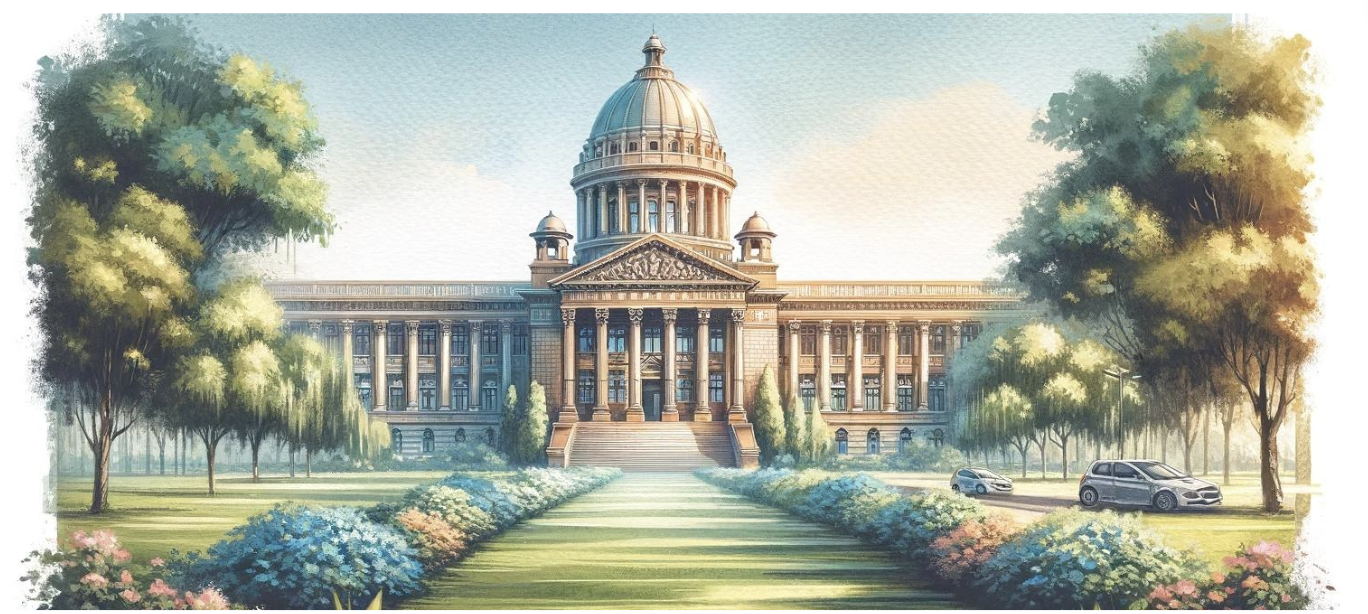In an era where political loyalty often swings with the tide of opportunities, India’s Anti-Defection Law stands as a bulwark aimed at preserving the sanctity of democratic ethos and ensuring legislative stability. Enacted in 1985, this law sought to arrest the rampant political defections that threatened the very foundation of India’s parliamentary democracy. However, despite its noble intent, the law has been marred by challenges that have diluted its efficacy over the years. This editorial delves into the intricate web of the Anti-Defection Law, shedding light on its:
- Foundational objectives to curb the menace of political defections.
- Operational challenges that have emerged, rendering it less effective in achieving its goals, and
Potential solutions that could fortify its mechanism, ensuring it serves its purpose of maintaining political stability while upholding the democratic principle of free speech and expression.
- Through a critical examination, this piece aims to unravel the complexities surrounding the law and proposes a pathway towards strengthening its application, thereby fostering a more robust and principled political landscape in India.
Relevancy for UPSC Aspirants
What is the Anti-Defection Law?
The anti-defection law is a rule in the Indian Constitution to stop politicians from frequently changing parties. It was added in 1985 to the Constitution through the 52nd Amendment Act.
Grounds for Disqualification:
- Voluntarily Giving Up Party Membership: If a legislator decides to leave their political party on their own, they can be disqualified. They don’t need to formally resign; their actions can show they’ve left the party.
- Voting Against Party’s Direction: If a legislator votes against their party’s instructions without permission, they can be disqualified.
- Joining Another Party: If a legislator who was independently elected decides to join a political party, they can be disqualified.
Exceptions to the Law:
- Merger of Parties: If a legislator’s original party merges with another party, they won’t be disqualified if they agree with the merger along with two-thirds of their party members.
- Split from Party: If a legislator splits from their original party but doesn’t join another party, they won’t be disqualified.
These rules aim to maintain stability and prevent unfair political maneuvering in the Indian legislative system.
Issues with the Anti-Defection Law
Hurts Democracy
The law hurts democracy because it limits what lawmakers can say and do. Instead of being accountable to the people who voted for them, lawmakers are pressured to follow their party’s orders.
No Clear Time Frame
There’s no clear and quick process for dealing with defection cases. The decision to disqualify lawmakers is left to the leaders of the legislative houses, who might be biased or influenced by politics. However, in a 2020 court case, it was ruled that decisions should be made within three months, unless there are exceptional circumstances.
Still Allows Defection
The law lets a group of lawmakers switch to another party without facing punishment if they make up at least two-thirds of their original party. This creates a loophole for unethical party changes, which can make politics unstable. It also encourages “horse-trading,” where lawmakers are bought and sold.
Doesn’t Solve the Real Problem
The law doesn’t tackle the reasons why lawmakers defect, like lack of democracy within parties, corruption, or cheating in elections. It also doesn’t stop parties from welcoming defectors, which means it doesn’t really stop defection from happening.
Way Forward
Steps to Strengthen the Anti-Defection Law
Addressing Procedural Issues
Shifting Adjudication Power Instead of letting Speakers of the House decide defection cases, an independent body like the Election Commission should handle it. This would make sure decisions are fair.
Time-bound Decisions Defection cases should be solved quickly. This stops them from being dragged out and used for political games.
Judicial Recourse People should be able to go directly to the Supreme Court or High Courts in some cases. This would stop unfair decisions.
Strengthening Party Accountability
Internal Democracy Parties need rules that make them fair and open. This would stop politicians from feeling unhappy and defecting.
Party Funding Reforms Making party money more transparent and responsible would stop people from using cash to make others switch sides.
Anti-Poaching Measures Offering jobs or benefits to make someone defect should be against the rules and punished. This would stop sneaky tactics.
Balancing Stability and Accountability
Exempting Mergers If parties join together for real reasons, defections should be allowed. This helps parties change without causing chaos.
Public Interest Considerations Before someone gets kicked out for defecting, we should think about if it’s really bad for the public. This way, we keep things stable but fair.
Right to Dissent Politicians should be able to disagree on some things without getting punished. This helps debates and lets people think freely.
How Other Countries Deal with Defections
UK In the UK, switching sides isn’t against the law, but there are consequences. People might lose party benefits, get in trouble, or even face new elections.
USA America doesn’t have a specific law against defections either. Sometimes, politicians switch parties for reasons like beliefs or strategies. They might face backlash or get new supporters, depending on the situation.
Conclusion
The talk about the Anti-Defection Law is all about how it helps keep politics stable but also how it needs changing. People studying for the UPSC exam need to really get what this law is about. They talk about the problems with it and how to fix them. It’s not just about books, it’s about understanding how we run things and the tough choices politicians have to make. If you’re planning to work in civil services, you gotta know how laws and politics mix. This article says we always need to learn and change to make democracy strong. And future administrators will play a big part in making this happen.

